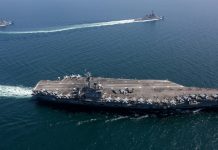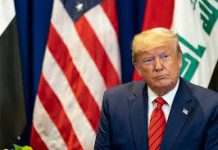
Egypt remains a vital U.S. ally in counterterrorism, anti-trafficking, and regional security initiatives. This enduring defense relationship enhances the stability and safety of both nations. In a notable advancement in military diplomacy, Lieutenant General Mahmoud Fouad Abdel Gawad, Commander of the Egyptian Air Force, recently convened with General Chang Dingqiu in Beijing. This meeting, initiated by the Chinese, represents a significant step towards deepening strategic cooperation between Egypt and China.
An official statement from the Egyptian Armed Forces on July 16th underscores Egypt’s commitment to broadening military alliances with friendly countries. The discussions between the air force leaders focused on enhancing collaboration, particularly in training programs, joint manufacturing, and technology transfers.
During his visit, Lieutenant General Abdel Gawad engaged with several key Chinese military figures, including the deputy chief of staff of the Chinese Air Force and senior officials from CATIC and NORINCO. He also toured Tangshan Air Force Base, witnessing an impressive aerial demonstration by Chinese J-10C fighters.
A moment of goodwill was marked when General Chang Dingqiu presented a commemorative shield to Lieutenant General Abdel Gawad, with advanced Chinese J-20 stealth fighters as the backdrop. While specific details on joint manufacturing and technology transfer were not disclosed, the discussions emphasized both nations’ commitment to exploring new avenues for cooperation.
This meeting signifies a proactive effort to strengthen military ties, showcasing a unified commitment to shared security objectives and strategic partnerships.
Historically, Egypt and China have maintained a robust defense relationship, highlighted by significant arms deals and collaborative production efforts spanning several decades. This strategic partnership began post-Yom Kippur War, as Egypt distanced itself from the Soviet Union. In 1975, China and Egypt inked their first weapons agreement, marking China’s entry into Middle Eastern arms sales, primarily involving Xi’an H-6 bombers and leading to numerous subsequent transactions.
During the 1980s, Egypt diversified its military inventory with various Chinese hardware, including submarines, destroyers, missile boats, and aircraft like the F-7B and J-6, some of which were locally assembled in Egypt.
By the 2000s, Egypt increasingly turned to China for advanced aircraft to counter threats such as the Islamic State in the Sinai Peninsula, acquiring sophisticated UAVs like the CH-4B and Wing Loong I, and beginning local production of ASN-209 reconnaissance UAVs and K-8 Karakorum trainers.
In the context of global geopolitical shifts and evolving arms trade dynamics, Egypt now views China as a critical supplier, especially given the limitations on traditional sources like Russia due to ongoing conflicts. In 2023, discussions emerged about a potential deal for the Chengdu J-10C multirole fighter, with Chinese representatives presenting its latest upgrades, including advanced electronic warfare capabilities and AESA radar systems.
In 2021, Beijing had already highlighted its JF-17 fighter jets and L-15 advanced trainer jet at Egypt’s premier international defense expo. Additionally, China is actively promoting its latest fifth-generation fighter jet, the FC-31, which has garnered significant interest in the Middle East.
Developed by the Aviation Industry Corporation of China and CATIC, the FC-31 presents Egypt with a valuable opportunity to enhance its air combat capabilities. One of the main factors for Egypt in considering defense deals with China is Beijing’s non-interference policy and its careful consideration of the strategic implications of its exports. Unlike some Western suppliers, China does not impose political conditions on arms sales and strives to ensure that these agreements do not disrupt the regional military balance.




